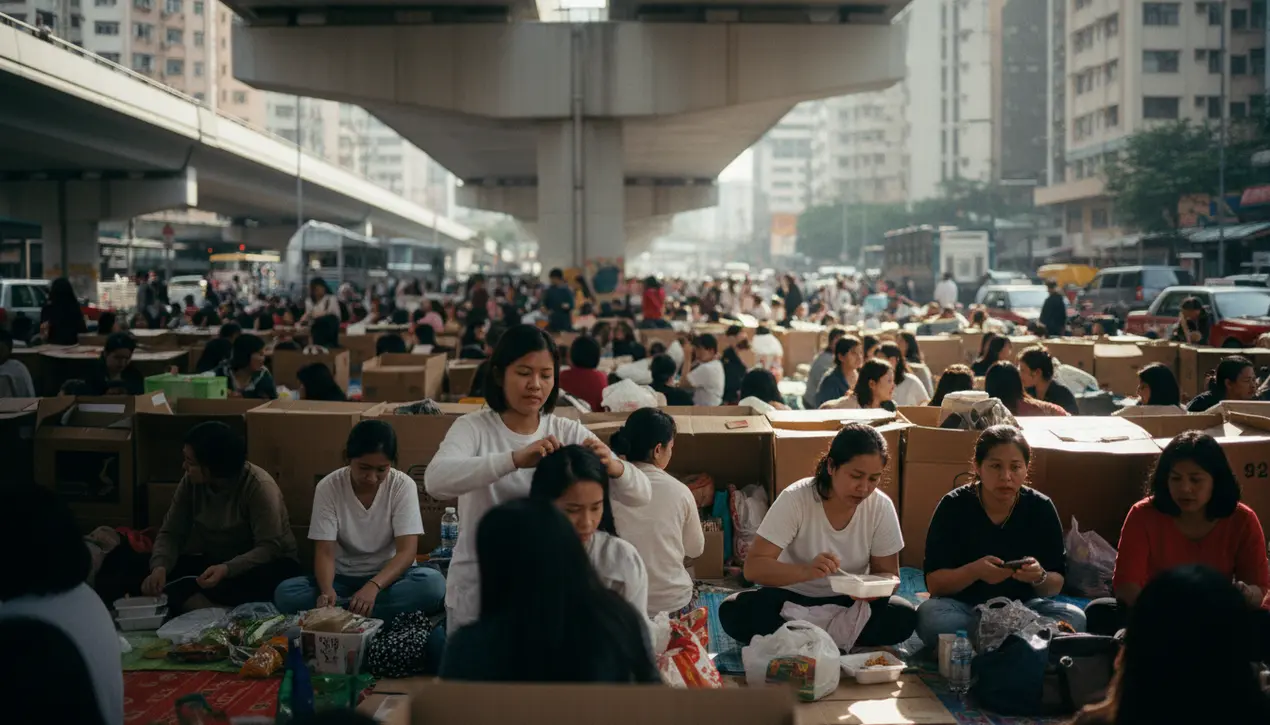
Politicshuman rightsRefugees and Migration
Challenges Faced by Hong Kong's Foreign Domestic Helpers
LA
Laura Bennett
5 hours ago7 min read
The story of Hong Kong's foreign domestic helpers is one written in the quiet corners of high-rise apartments and on the crowded pavements of Central on a Sunday, a narrative of resilience etched into the city's very fabric. To understand it, you have to listen, not just to the headlines about exploitation or policy debates, but to the individual voices that compose this community.I've spent afternoons speaking with women like Maria, a Filipina mother of three who has spent fifteen years raising other people's children while her own grew up via video call. Her story isn't just about the 'two-week rule'—the infamous immigration policy that forces helpers to leave Hong Kong within two weeks of their contract ending, a clause that traps many in abusive situations for fear of unemployment and deportation.It’s about the psychological toll of that constant precarity, the way she measures her life in two-year contract cycles, the deferred dreams of opening a small sari-sari store back home that seem to drift further away with each passing year. Then there’s Siti, from Indonesia, who describes the 'live-in rule' not as a matter of convenience, but as a dissolution of boundaries, where she is on call from 5 AM until past midnight, her small cot in the kitchen a stark reminder that her private life is a concession, not a right.The mandatory wage, often presented as a protective measure, hasn't kept pace with the city's soaring cost of living, forcing many into a cycle of debt to recruitment agencies that charge exorbitant fees, a practice that activists have likened to modern-day indentured servitude. But within this landscape of structural challenge, there is a profound human spirit.On their statutory day off, the city transforms. Under the bridges of Statue Square, they create a temporary metropolis of cardboard boxes and picnic mats, sharing food, doing each other's hair, and forming support networks that become surrogate families.They are economists, psychologists, and diplomats in their own right, navigating complex employer relationships and sending home remittances that entire provincial economies rely upon. This isn't merely a labour issue; it's a profound sociological phenomenon about care, migration, and the invisible architecture that supports a global city, asking us all a difficult question: how can a society that so deeply depends on their love and labour continue to justify a system that offers so little in return?.
#foreign domestic workers
#Hong Kong
#labor rights
#migrant workers
#human rights
#featured
#social challenges
#working conditions
Stay Informed. Act Smarter.
Get weekly highlights, major headlines, and expert insights — then put your knowledge to work in our live prediction markets.
Related News
Comments
Loading comments...
© 2025 Outpoll Service LTD. All rights reserved.












